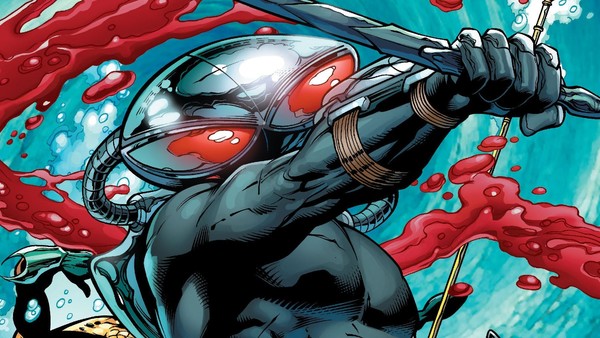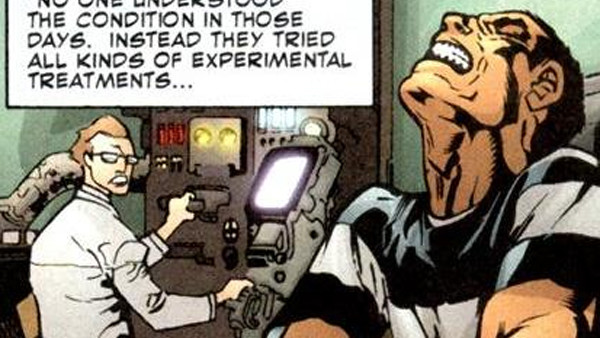8 Things You Didn't Know About DC's Black Manta
A deep dive into one of DC's most mysterious villains.

Supervillains are an essential part of the hero story. Batman has The Joker, Spiderman has Peter Parker, and when it comes to the Atlantean king Aquaman, few villains hate Arthur Curry more than the mysterious Black Manta.
Black Manta has over five decades of history in the pages of DC Comics, with the character turning 50 in September 2017. To capitalize on this, DC and Netherrealm Studios have released Black Manta as a playable character in Injustice 2, making it his first appearance as a playable character in a fighting game.
Black Manta is a cold, and calculating mercenary, with little to no remorse, who, because of the lack of Aquaman media, is rarely is spoken about when people discuss the best of the baddies. This is unfortunate, as Manta has an interesting history, clear motivations, and a cut throat mentality that should put him “leagues” above the competition.
Fortunately, fans have an opportunity to be re-introduced to the sadistic scuba diver in the 2018 Aquaman film, where he will debut in all his murderous glory, and is set to be played by Yahya Abdul-Mateen II. Until then, brush up on the Devil of the Sea, as we take a deep dive into Black Manta.
8. A Supervillain On The Spectrum

For many years, Black Manta’s back-story was shrouded in mystery within the pages of DC Comics. This ended in 1993, when Aquaman #6 attempted to flesh out the character. Since then, Manta has had at least three different origins, but the most perplexing retelling of Manta’s early life came a decade after his origin was created.
In the 8th issue of the 2003 Aquaman series, it was explained that Black Manta was born autistic. With no advancements in medicine to treat such a disorder, Manta, as a child, is sent to Arkham Asylum and undergoes various forms of experimental treatment, hoping to cure him. He is eventually “cured” of the illness, gaining homicidal tendencies as a result, even murdering the scientist who treated him.
This was a gross misrepresentation of the effects of autism. The insensitive nature in which the disorder is described is shocking, but more offensive is the idea that the disorder can be “cured” at a mental institution, something debunked by medical professionals. Autism Spectrum Disorder is estimated to affect tens of millions of people worldwide. Manta’s backstory could have been the harbinger of a greater understanding, but instead he is demonized for being on the spectrum.